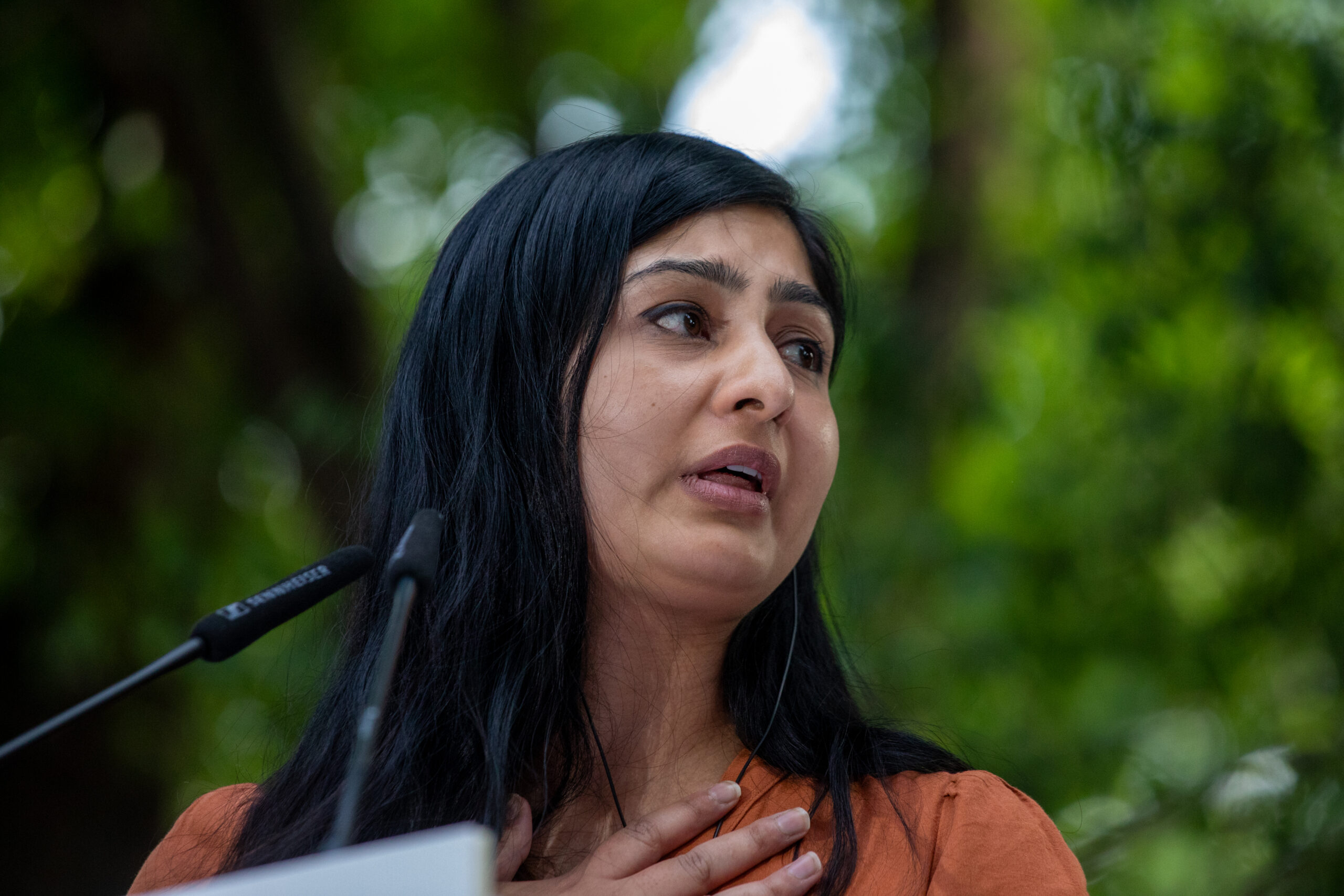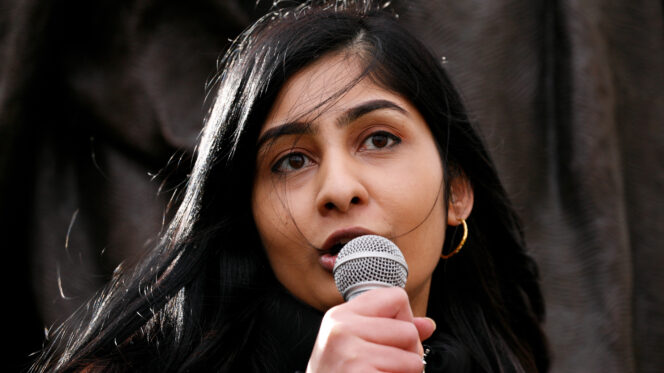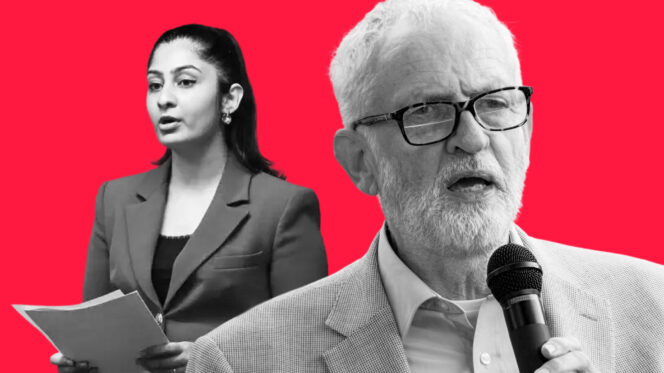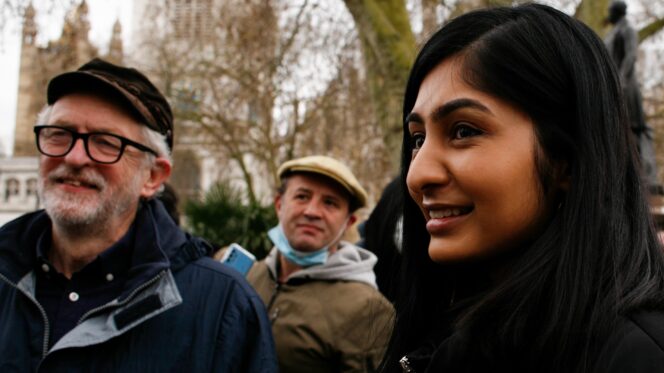
Let’s dream for a second. It’s 2034, and there’s an upcoming general election in the UK. After nine years of soaring prices, racist riots and a financial crisis caused by climate shocks, an unpopular Labour government has just about clung on, kept in power by a fragmented party system more than anything else. Reform has lost its shine after running austerity councils and scandal-ridden mayoralties, and is still splitting the conservative vote with a Tory party on life support.
But in the background, the new left party led by Zarah Sultana has been quietly rising. In an electoral alliance, Sultana’s party and the Greens won 40 seats in 2029, and their cost-of-living focused, anti-establishment agendas are popular with the electorate.
It’s 10pm on polling day. A shock ripples through the country. The exit poll predicts a small majority for the left alliance. Thousands take to the streets in celebration. Within a week, Sultana is prime minister, and we enjoy a huge moment of euphoria. What next?
This is where most people wake up, at the high point of the dream. We tend not to think about the nightmarish second act: actually governing from the left.
In 1981, Francois Mitterand, said to possess so much charm that he could have “seduced a stone”, was elected president of France on a Marxo-Keynesian platform that promised a rupture with the established order. Having built a common platform between the French Socialist and Communist parties, Mitterand embarked on a blitz of radical reforms including a wealth tax and the nationalisation of most major banks.
But from the beginning, Mitterand was operating in less-than-ideal circumstances. Margaret Thatcher and Ronald Reagan had just been elected in the UK and US and were openly hostile to Mitterrand and his agenda. France’s membership of the European Monetary System and the growing power of international currency markets meant constant attacks on the French franc. Together with the Bank of France’s ideologically motivated monetary policy, Mitterand was left in a mess of rising prices, expensive imports and huge pressure to roll back on his programme.
And roll back Mitterand did. After having built for decades to win the presidency, the promised “French road to socialism” lasted for just two years. In the face of huge pressure, Mitterand abandoned most of his programme and imposed austerity instead, accepting higher unemployment as the cost of lowering inflation. And while some of his reforms such as lowering the retirement age and abolishing the death penalty survived, his main legacy was the destruction of the French Communist party, decades in the wilderness for the French left and the rise of Jean-Marie Le Pen and the far-right National Front.
Things wouldn’t be much easier for Sultana. The UK is a declining power in a dollar-dominated world with powerful currency markets that will assault the pound just as they did the franc. We have a weak economy with an ageing population, low productivity and a heavy reliance on financial services. And just like Mitterand, we face a hostile Bank of England that will go to war with any left government.
All of this is to say that winning an election is the easy part. Building the power needed for a socialist transition is far harder. Mitterand’s failure makes it clear: winning a presidency or a majority in parliament is nowhere near enough. Every left government of any success has cultivated popular power: the deep and organised support within trade unions, community organisations and wider society that can see off attacks by capital and steel the leadership’s nerve in times of crisis.
Salvador Allende in Chile relied on the “cordones industriales” to maintain production of goods during rightwing capital strikes. In Brazil, Luiz Inácio Lula da Silva – Lula – needed the Landless Workers’ Movement to pressure legislators who opposed his programme. Hugo Chávez resisted the 2002 coup in Venezuela because of his Bolivarian Circles, armed workers councils that were independent of the state and which he described as a “great human network” able to defend the revolution.
The new left party must build its own “great human network”. After a 50-year assault on working class and leftwing institutions, from working men’s clubs and pubs to council housing, unions and now universities, there is much to do. The Belgian Workers’ Party runs free medical centres across the country. Germany’s Die Linke organises tenants around rent reductions. Many on the right know this too: even Reform has experimented with buyers’ clubs to save members money.
Food coops, workers centres, quilt clubs and sports leagues. Community canteens, really free schools and collective childcare. Renters’, workers’ and community unions. The new left party must help build these links in the great human network and give people new-found confidence, skill and a glimpse of the good life beyond capitalism. In an age of loneliness and passivity, solidarity and agency is the cure. The party must prepare people to fight and hope. Only then will winning elections be worth the effort.
Joe Todd is an organiser and writer.


